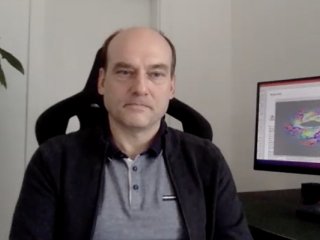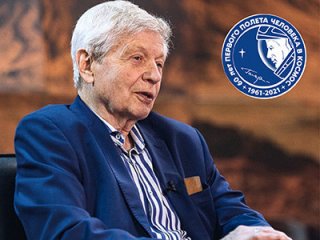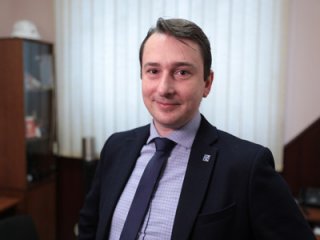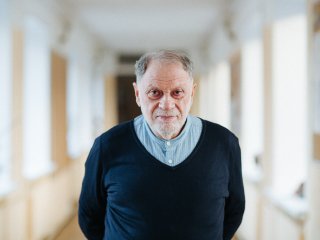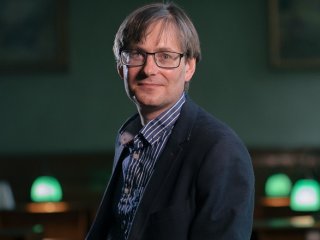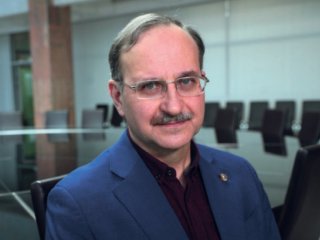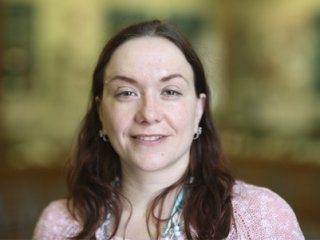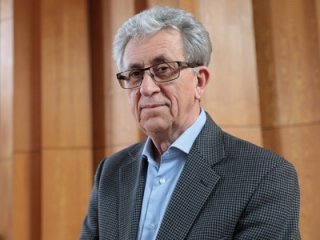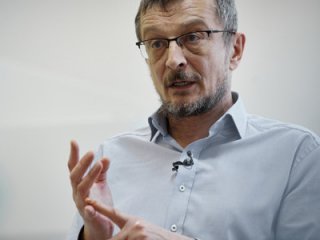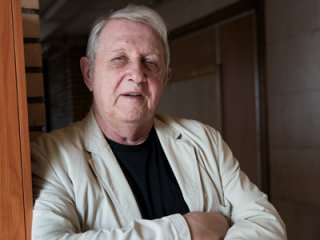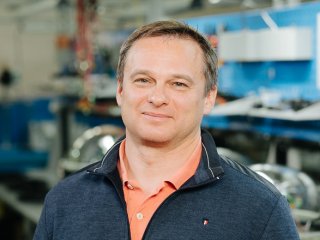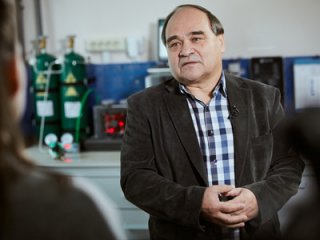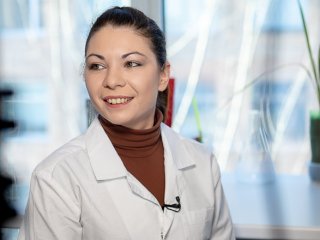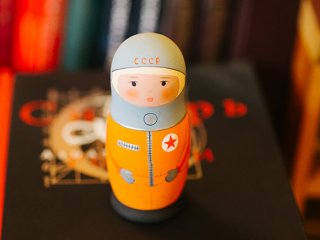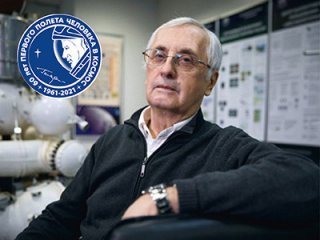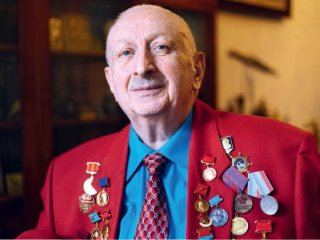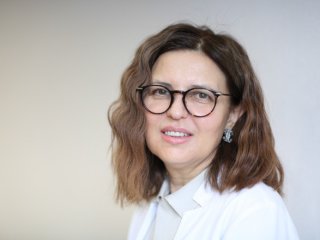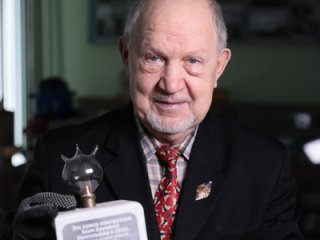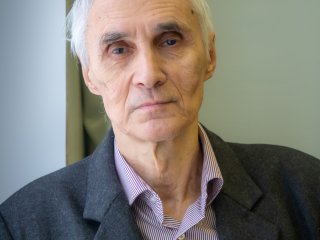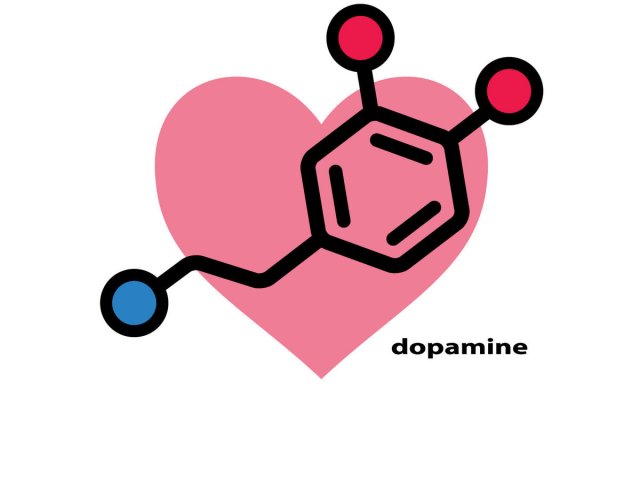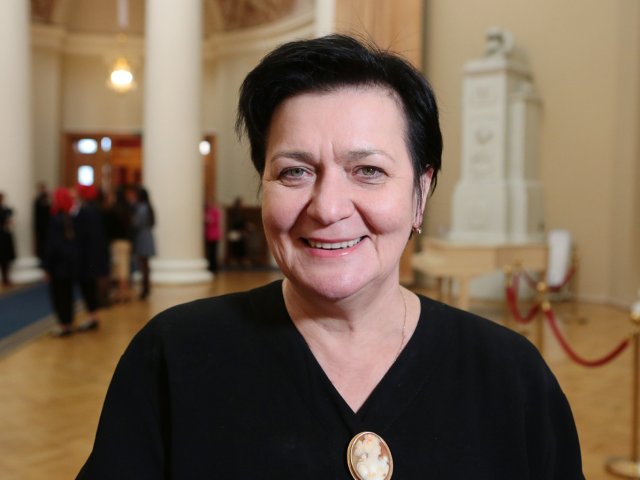Interviews, page #1
FEFU experts are now one step closer to understanding how proteins work thanks to symmetry laws. Aleksandr Molochkov, Dr. Sc. in Physics and Mathematics, Head of the Pacific Quantum Center, on the center research
Could the lost Martian atmosphere be recovered and when could Mars be colonized? What are scientists looking for on Venus? We discussed these and many other questions with Oleg Vaisberg, Chief Research Officer at the Space Research Institute of the Russian Academy of Sciences
Dmitry Lemeshev, Dean of the Faculty of Inorganic Substances and High-Temperature Materials Technology, University of Chemical Technology of Russia, in a conversation about modern uses of ceramic materials
Why do we need to sleep? Is it possible to sleep less and stay healthy? What do our dreams mean? V. M. Kovalzon, Chief Research Officer at the Severtsov Institute of Ecology and Evolution of the Russian Academy of Sciences, is talking about it.
“The internal constitution of plants at various stages of their development and special features of the surfaces of various structures that are examined under the microscope, reveal a world of information”
Is it possible to create a full-scale model of the human brain with a super computer? What is Russia’s position in the world race of computations? We discussed this and other topics with RAS Academician Igor Kalyaev
After decades in the forefront of science, Budker Institute of Nuclear Physics continues developing synchrotron radiation sources, colliders, and other installations, and not just for the Russian science sector
Why do birds sing in spring? What makes them fly away from warmer areas? Which of birds can be compared to crows in mental abilities? Olga Kalashnikova provides the answers to these questions
Conversation with cosmonaut No 58 O.Y. Atkov, who has performed the longest spaceflight at the time, doctor of medicine, correspondent member of RAS.
Yuri Dobrovolsky highlights key areas of hydrogen energetics and research developments of the Competence Center of National Technological Initiative New and Mobile Energy Sources under ICPP RAS in Chernogolovka
35 years ago, Chernobyl catastrophe broke out. How did it happen, and what lessons did we learn from it? The answers to these questions are provided by A.V. Rubanovich, head of ecological genetics laboratory.
Head of Neutrino Program at JINR Dmitry Naumov on Baikal Neutrino Telescope and mysterious features of neutrino
Candidate of chemistry Boris Tarasov dwells upon hydrogen energetics and energy accumulating methods developed at the Institute of Chemical Physics Problems (ICPP) RAS in Chernogolovka
The scientists from many countries wonder how naked mole rats manage to live for over 30 years, which is not typical of rodents. Olga Averina of the Belozersky Research Institute of Physical and Chemical Biology provides the details
Academician of RAS Viktor Savinykh, two times Hero of the Soviet Union, who has performed three spaceflights as onboard engineer, recalls his flights, reasons upon the importance of scientific research and education of the younger generation.
Station Luna-25 will start for the Moon in October 2021. What are the tasks of new Russian lunar mission? The answers are provided by Igor Mitrofanov, head of nuclear planetology department at the Space Research Institute (IKI) of RAS.
Levan Stazhadze is a doctor of medicine, professor, full member of the International Astronautics Academy and a real groundbreaker. Today’s reminiscences are devoted to the 60th anniversary of the first space flight
Is it possible to vanquish ageing and not to fall ill? What factors lead to agility and can we cancel them? Commentaries by O.N. Tkacheva, director of the Russian Gerontology Research Clinical Center at the Pirogov Russian Research Medical University
Once, amateur radio has been a very popular hobby. Does anybody keep the ball rolling today? Does this hobby have future? Commentaries of Yevgeny Sukhoverkhov, head of Radio Electronics Museum Complex
The magnetic field protects us from space radiation and solar wind. There would have been no life on our planet without it. What will happen if magnetic field inversion occurs?
Partners
Show allOur mobile application
Social networking
Recent
Popular
Lectures
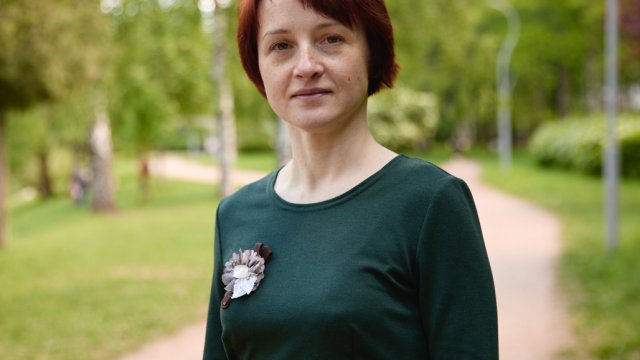
What saints did the conquistadors pray to and why did they decide to conquer Mexico? What was the ethnic, regional, and age composition of the Conquista?
